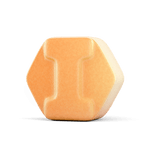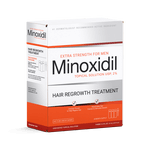Buy Bystolic online without prescription

BUY NEBIVOLOL
General Information.
Uses of Bystolic
Hypertension. Bystolic is used for lowering high blood pressure in patients suffering from hypertension.
Heart Failure. Bystolic is also used to relieve the symptoms of heart failure by improving the blood flow to the heart.
ConcernsThe effect of this medicine can be observed within 1-2 hours of administration.
The effect of this medicine lasts for an average duration of 10-12 hours.
Use of alcohol should be avoided while taking Bystolic, especially when you start taking medicine or change the dosage. Symptoms like headache, dizziness, change in pulse or heart rate should be reported to the doctor.
No habit-forming tendencies were reported.
This medicine is not recommended for use during pregnancy unless absolutely necessary. Consult your doctor about the potential benefits and risks before deciding to take this medicine. Even if the medicine is used, the dose should be as low as possible and should be discontinued at least 2-3 days before delivery.
This medicine is not recommended for use by breastfeeding women unless absolutely necessary. The infant should be monitored for adverse effects like changes in pulse rate, respiratory changes, and low blood sugar levels. Consult your doctor before taking this medicine.
General InstructionsTake Bystolic as instructed by the doctor. The dosage is likely to change based on your response to the medicine. It is advised to take this medicine at the same time of the day. The blood pressure should be monitored at regular intervals to ensure that the response at the given dose is appropriate. Do not start or discontinue the usage of any other medication without consulting your doctor.
Missed DoseTake the missed dose as soon as you remember. However, the missed dose can be skipped if it is almost time for the next scheduled dose.
OverdoseAn overdose of this medication can cause some serious effects on the heart, blood vessels, and nerve conduction. Report the incidence as soon as possible so that medical intervention can begin. Supportive measures like Gastric lavage and symptomatic treatment might be required based on severity.
Other detailsTo be taken with food.
To be taken as instructed by a doctor.
May cause sleepiness.
How it worksThis medicine works by relaxing the blood vessels and slowing the heartbeat. This results in improved blood flow to the heart and the blood pressure is lowered.
Safety Information.
Side effects
The most common side effects associated with Bystolic are:
- Headache
- Dizziness
- Unusual tiredness and weakness
- Diarrhea
- Increase in body fat and cholesterol
- Sleeplessness
- Swelling of face, lips, eyelids, tongue, hands, and feet
- Chest pain and discomfort
- Decreased blood pressure
- Difficulty in breathing
- Weight gain
- Burning, numbness, tingling in the arms and feet
- Allergic Skin Reaction
Allergy. Bystolic is not recommended for people who have a known history of allergy to this medication or any other medicines belonging to the group Beta Blockers. (Eg: Atenolol, Labetalol, etc.).
Liver disease. Bystolic is not recommended for people having severe liver impairment.
Circulatory disorders. Bystolic is not recommended for people suffering from blood circulation disorders or cardiogenic shock.
Heart Failure. Bystolic is not recommended for use in people suffering from severe heart failure or people receiving emergency attention.
Heart diseases. Bystolic is not recommended for people who have serious heart problems like heart block and Sick Sinus Syndrome, especially if no pacemaker has been implanted to correct the defect.
Bronchial asthma. Bystolic is not recommended for use in people having a history of bronchial asthma and bronchospasm or any other condition in which the airway is obstructed.
Heart rhythm disorders. Bystolic is not recommended for use in people having heart rhythm disorders like Bradycardia.
InteractionsAll drugs interact differently for person to person. You should check all the possible interactions with your doctor before starting any medicine.
Interaction with AlcoholUsing alcohol while taking Bystolic may cause an additional lowering of the blood pressure.
Use of alcohol should be avoided while taking Bystolic, especially when you start taking medicine or change the dosage. Symptoms like headache, dizziness, change in pulse or heart rate should be reported to the doctor.
Interaction with Medicine- Amlodipine
- Diltiazem
- Fluoxetine
- Amiodarone
- Aminophylline
- Ergotamine
Asthma. Bystolic should not be used in patients suffering from bronchial asthma or Chronic Obstructive Pulmonary Disease. Report the incidence of Asthma to your doctor so that Bystolic can be substituted with another medication.
Heart Block. Bystolic should not be used in patients having a heart block greater than first degree. However, it can be used in this case if a pacemaker is present to correct the disorder.
Diabetes. Bystolic should be administered with caution in patients suffering from diabetes or a condition where blood sugar level is likely to get low. You should consult a doctor if any symptom indicating a lowered blood sugar level is suspected while using this medicine.
Liver Disease. Bystolic should be administered with caution in patients having a liver disease. Suitable dose adjustment and safety monitoring are advised in cases where the impairment is severe.
Glaucoma. Bystolic should be administered with caution in a patient suffering from Glaucoma. A change in the dose of current Glaucoma medicine may be required. In some cases, your doctor may advise the use of another medicine in place of a beta blocker.
High cholesterol and fat. Bystolic should be administered with caution in patients having high levels of cholesterol and fat in their body. Suitable dose adjustment and safety monitoring may be required in such cases.
Hyperthyroidism. Bystolic should be used with caution in patients having high thyroid hormone levels. Special caution should be taken while withdrawing this medicine. The dosing and effects of medicine should be closely monitored.
Myasthenia Gravis. Bystolic should be used with caution in patients suffering from this condition characterized by severe muscle weakness.
Pheochromocytoma. Bystolic should be used with caution in patients suffering from this condition. The treatment should be suitably combined with an alpha-blocker with appropriate dosing and clinical monitoring.
Warnings for special populationPregnancy. This medicine is not recommended for use during pregnancy unless absolutely necessary. Consult your doctor about the potential benefits and risks before deciding to take this medicine. Even if the medicine is used, the dose should be as low as possible and should be discontinued at least 2-3 days before delivery.
Breastfeeding. This medicine is not recommended for use by breastfeeding women unless absolutely necessary. The infant should be monitored for adverse effects like changes in pulse rate, respiratory changes, and low blood sugar levels. Consult your doctor before taking this medicine.
General warningsAnesthetics. Bystolic should be used with caution while a patient is given anesthesia as the risk of adverse effects on the heart, and blood circulation is high.
Heart failure. Bystolic can cause heart failure and reduced flow of blood, especially in people having a heart disease. Suitable dose adjustment and safety monitoring might be required based on the severity of the disease.
Ischemic heart disease. Bystolic should not be discontinued abruptly in patients with Ischemic heart disease. The dosage should be gradually reduced over a period of 1 to 2 weeks
Major surgery. Bystolic should be given with caution to patients who are going to undergo major surgery. The dose should be very carefully monitored in such cases both before and after the surgical procedure.
Pheochromocytoma. Bystolic should be administered with caution in patients having this condition, which results in an excess of a substance that controls heartbeat, blood pressure, etc. Suitable medicine combinations are to be given in order to counter the effects.
Bronchospastic disease. Bystolic should be administered with caution in patients having a disease of the lung or the airways leading to the lung. It can be Pneumonia, Asthma, or Chronic Obstructive Pulmonary Disease. Suitable dose adjustment and safety monitoring are necessary in such cases.
Diabetes and hypoglycemia. Bystolic should be administered with caution in patients having elevated blood sugar levels. Some adverse effects may not be evident in these cases, and hence doctor's intervention is a must before taking this medicine.
Thyrotoxicosis. Bystolic should be administered with caution in patients having elevated thyroid hormone level. Some adverse effects may not be evident in these cases, and hence doctor's intervention is a must before taking this medicine.
Peripheral vascular disease. Bystolic should be administered with caution in patients having narrowed blood vessels in the body due to any underlying reason. Dose adjustment and safety monitoring might be required in such cases.
Other medicine. Bystolic can react with medicines that you might use. Report the use of all medicines, including supplements and herbs to the doctor.
Sports. It is advised to not indulge in certain sports while Bystolic is consumed. Archery, racing, shooting, and other high-risk sports should be avoided. Sportspersons should refer to the list of medicine published by World Anti-Doping Agency, which is not to be taken while participating in specific sports events.
F.A.Q.
Q: Safe with alcohol?
A: Use of alcohol should be avoided while taking Bystolic, especially when you start taking medicine or change the dosage. Symptoms like headache, dizziness, change in pulse or heart rate should be reported to the doctor.
Q: Is it habit-forming?
A: No habit-forming tendencies were reported.
Q: Usage in pregnancy?
A: This medicine is not recommended for use during pregnancy unless absolutely necessary. Consult your doctor about the potential benefits and risks before deciding to take this medicine. Even if the medicine is used, the dose should be as low as possible and should be discontinued at least 2-3 days before delivery.
Q: Usage while breastfeeding?
A: This medicine is not recommended for use by breastfeeding women unless absolutely necessary. The infant should be monitored for adverse effects like changes in pulse rate, respiratory changes, and low blood sugar levels. Consult your doctor before taking this medicine.
See Also.

Inderal
Propranolol
Inderal is indicated for the treatment of tremors, angina (chest pain), hypertension (high blood pressure), heart rhythm disorders, and other heart or circulatory conditions. It is also used to treat or prevent heart attack, and to reduce the severity and frequency of migraine headaches.
Delivery.
International Registered Mail - 21-30 business days, Price - $16.00, No signature is required upon delivery
EMS (Express Mail Service) - 14-21 business days, Price - $25.00, Signature may be required upon delivery
We will carefully pack your order to make sure it's safe and secure and will dispatch it within 24 hours.
For your privacy we package all parcels to look like regular private mail. We will not disclose the contents of your order. Package dimensions: 9.4x4.3x0.3 inches (24x11x0.7cm).
- International Registered Mail
- 21-30 business days
- No signature is required upon delivery
- 24/7 Customer Support Service
- 21 Years Experience
- 100% Satisfaction Guarantee
- 100% Secure Ordering
-
$16.00
delivery
- EMS (Express Mail Service)
- 14-21 business days
- Signature may be required upon delivery
- 24/7 Customer Support Service
- 21 Years Experience
- 100% Satisfaction Guarantee
- 100% Secure Ordering
-
$25.00
delivery
Contact.
Questions? Comments? Problems? Just drop us a line!

